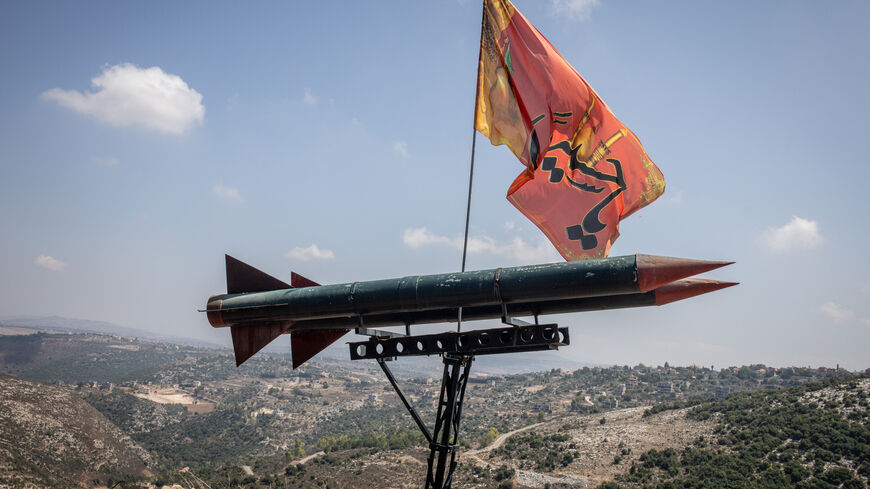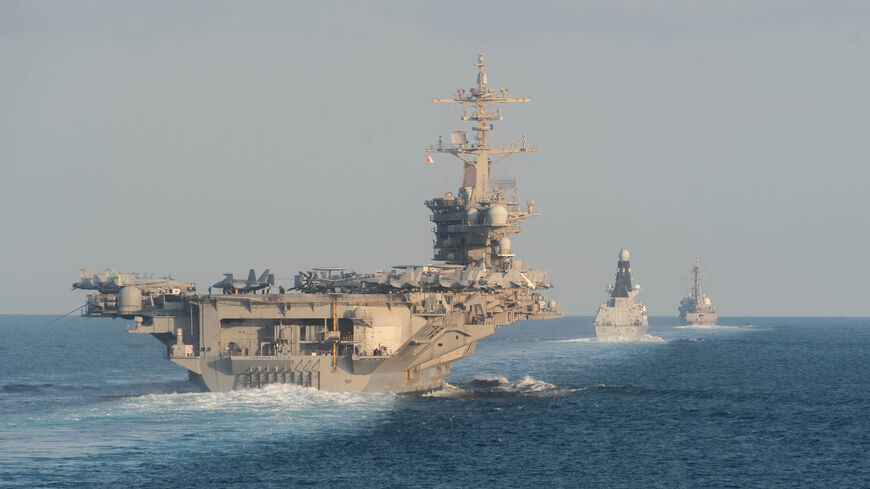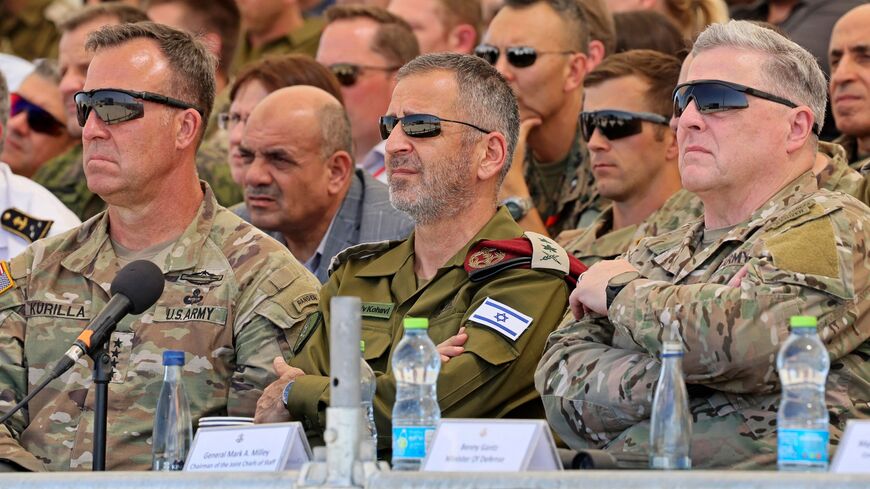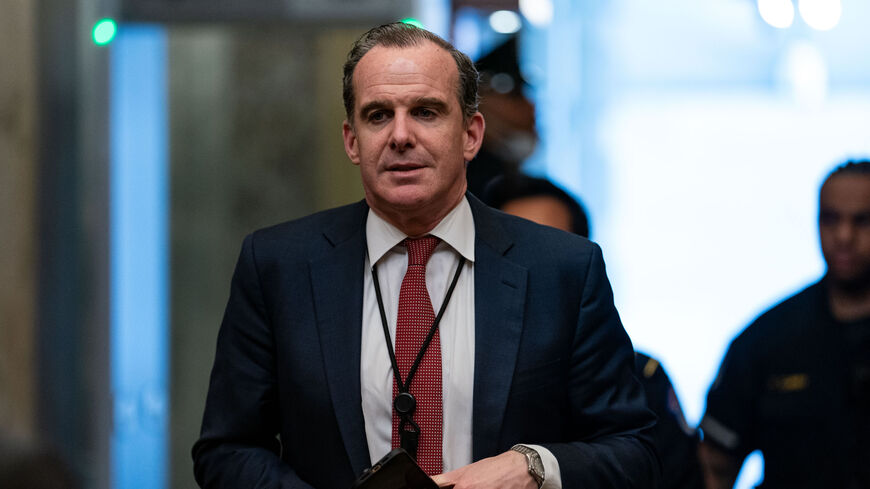US to deploy more forces to Middle East to deter Iran
US Defense Secretary Lloyd Austin has authorized the deployment of an additional aircraft carrier, fighter squadron and warships capable of shooting down ballistic missiles as Pentagon readies for potential major attack against Israel by Iran and its proxies.
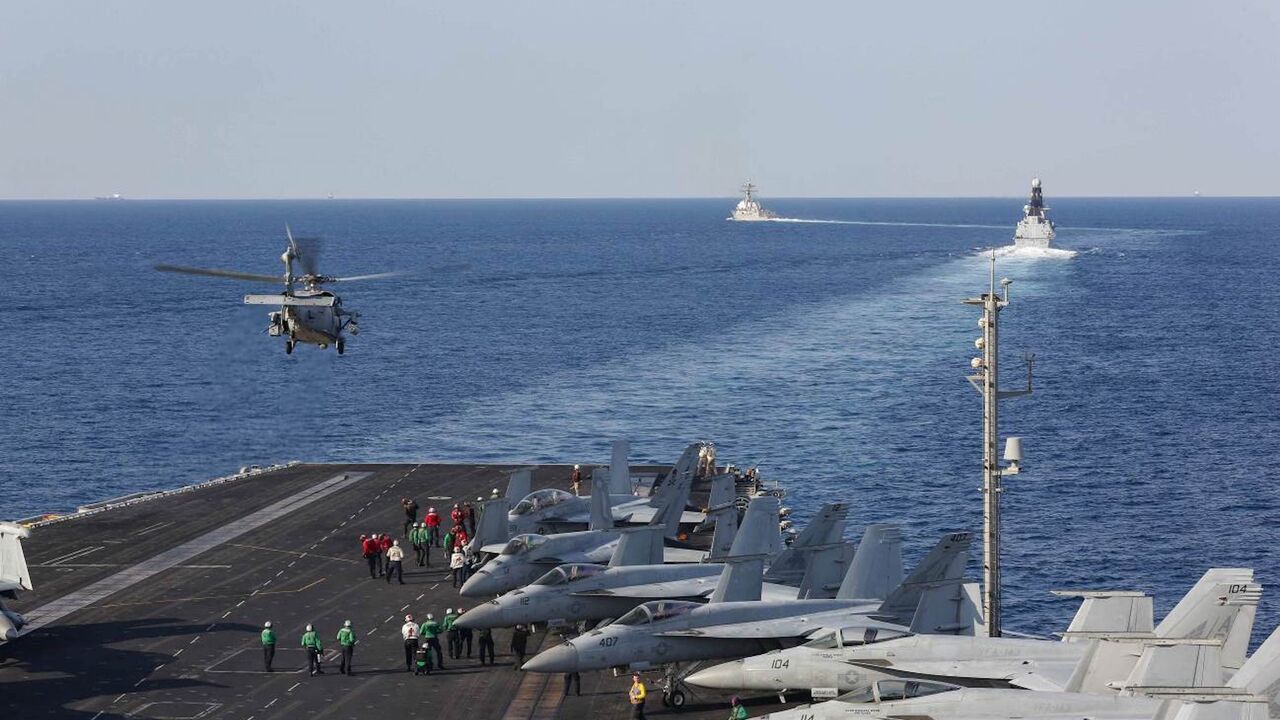
WASHINGTON — The Pentagon on Friday approved the deployment of new naval and air forces to the Middle East in preparation to defend Israel and American troops in the region from an anticipated attack by Iran and militias it has armed across the region.
The deployments include an additional US fighter jet squadron along with Navy cruisers and destroyers capable of shooting down ballistic missiles, the department announced.
US Defense Secretary Lloyd Austin also approved the deployment of the aircraft carrier USS Abraham Lincoln to replace the USS Theodore Roosevelt, which is currently in the Gulf of Oman along with five nearby destroyers. The Pentagon chief also signed off on readying additional land-based ballistic missile defense systems for deployment, the department announced.
"Secretary Austin has ordered adjustments to US military posture designed to improve US force protection, to increase support for the defense of Israel and to ensure the United States is prepared to respond to various contingencies," Pentagon deputy press secretary Sabrina Singh said in a statement.
Why it matters: The preparations come as Iran and its proxy militias across the region have signaled a fierce and potentially unified retaliation for the assassination of a senior Hezbollah commander in Lebanon and Hamas' top political leader, Ismail Haniyeh, in the Iranian capital this week.
Biden administration officials said they received no forewarning before Wednesday's assassination of Haniyeh — Hamas' chief negotiator — in a government guest house in Tehran. Israel has not commented on the killing, though US officials have said they believe Israel was behind it.
US officials have also said they were not involved in an Israeli drone strike in Beirut on Monday that killed Hezbollah's top military commander, Fuad Shukr.
Iran is believed to possess the region's largest arsenal of drones and ballistic missiles outside of Israel and has widely proliferated its projectile weapons to militias in Iraq, Syria, Lebanon and Yemen. At least one militia group in Iraq has threatened to also attack US forces in the region in response to the recent strikes.
What's next: Israeli officials have been preparing for another potential multi-front attack similar to the one launched by Iran and its proxies in mid-April in retaliation for an Israeli airstrike that killed two senior Islamic Revolutionary Guard Corps generals at Iran's consulate complex in Damascus.
The new US deployments will add to a massive array of US naval and air firepower already assembled in the Mediterranean and Persian Gulf regions as Israel's ongoing war against Hamas in the Gaza Strip has fueled other latent conflicts across the region exploited by Iran and its proxies.
In a call with his Israeli counterpart, Yoav Gallant, on Friday morning, Austin stressed that the "unprecedented scale of US support for Israel since Oct. 7 should leave Iran, Lebanese Hezbollah and other Iranian-backed terrorist groups with no doubt about US resolve," Singh told reporters at the Pentagon.
US defense officials remained tight-lipped throughout the week about the potential for new deployments as the Biden administration sought to downplay the inevitability of escalation with Iran while privately pressing Israeli officials to accept a cease-fire deal with Hamas as a way out of the crisis.
President Joe Biden spoke with Israel's Prime Minister Benjamin Netanyahu by phone on Thursday and pledged additional military deployments while also pressing for a cease-fire. On Friday morning, Austin assured his Israeli counterpart that additional US forces would soon be on their way.
Austin also underscored to Gallant that there was still time to defuse the situation by adopting a cease-fire to halt the war in Gaza.
"We do believe there is an off-ramp here, and that is that cease-fire deal," Singh stressed. "Once that comes through, and once hostages are released, that's what we really want to see here."

